Энтони Хоуп - Английский язык с Энтони Хоупом. Узник Зенды / Anthony Hope. The Prisoner Of Zenda
- Название:Английский язык с Энтони Хоупом. Узник Зенды / Anthony Hope. The Prisoner Of Zenda
- Автор:
- Жанр:
- Издательство:Литагент «Восточная книга»1243df63-7956-11e4-82c4-002590591ed2
- Год:2009
- Город:Москва
- ISBN:978-5-478-01181-9
- Рейтинг:
- Избранное:Добавить в избранное
-
Отзывы:
-
Ваша оценка:
Энтони Хоуп - Английский язык с Энтони Хоупом. Узник Зенды / Anthony Hope. The Prisoner Of Zenda краткое содержание
В книге предлагается роман Энтони Хоупа «Узник Зенды», адаптированный (без упрощения текста оригинала) по методу Ильи Франка. Уникальность метода заключается в том, что запоминание слов и выражений происходит за счет их повторяемости, без заучивания и необходимости использовать словарь.
Пособие способствует эффективному освоению языка, может служить дополнением к учебной программе. Предназначено для студентов, для изучающих английский язык самостоятельно, а также для всех интересующихся английской культурой.
Английский язык с Энтони Хоупом. Узник Зенды / Anthony Hope. The Prisoner Of Zenda - читать онлайн бесплатно ознакомительный отрывок
Интервал:
Закладка:
The King lit a cigarette.
“Well, Sapt?” said he, questioningly.
“He mustn’t go,” growled the old fellow.
“Come, colonel, you mean that I should be in Mr. Rassendyll’s debt, if – ”
“Oh, ay! wrap it up in the right way,” said Sapt, hauling a great pipe out of his pocket.
“Enough, sire,” said I. “I’ll leave Ruritania today.”
“No, by thunder, you shan’t – and that’s sans phrase, as Sapt likes it. For you shall dine with me tonight, happen what will afterwards. Come, man, you don’t meet a new relation every day!”
“We dine sparingly tonight,” said Fritz von Tarlenheim.
“Not we – with our new cousin for a guest!” cried the King; and, as Fritz shrugged his shoulders, he added: “Oh! I’ll remember our early start, Fritz.”
“So will I – tomorrow morning,” said old Sapt, pulling at his pipe (и я не забуду – завтра утром, – сказал старый Сэпт, затягиваясь трубкой; to pull at – дергать; затягиваться / сигаретой /).
“O wise old Sapt!” cried the King (о, мудрый старина Сэпт, – воскликнул король). “Come, Mr. Rassendyll – by the way, what name did they give you (пойдемте-же, мистер Рассендил; кстати, какое имя вам дали)?”
“Your Majesty’s,” I answered, bowing (/такое же, как/ у вашего величества, – ответил я, кланяясь).
“Well, that shows they weren’t ashamed of us,” he laughed (ну, это показывает = говорит о том , что нас не стыдятся, – рассмеялся он). “Come, then, cousin Rudolf (ну, пойдемте, кузен Рудольф); I’ve got no house of my own here (у меня здесь нет собственного дома), but my dear brother Michael lends us a place of his (но мой дорогой брат Михаэль предоставляет нам свой; to lend – одалживать, давать взаймы ), and we’ll make shift to entertain you there (и мы удовольствуемся тем, что примем вас там; to make shift – перебиваться, обходиться );” and he put his arm through mine (он взял меня под руку: «продел свою руку сквозь мою»; to put – класть, положить; помещать, размещать ) and, signing to the others to accompany us (и сделав знак остальным присоединиться к нам; to accompany – сопровождать ), walked me off, westerly, through the forest (повел меня через лес на запад).
We walked for more than half an hour (мы шли более получаса), and the King smoked cigarettes and chattered incessantly (король курил сигареты и болтал без умолку; incessantly – непрерывно ). He was full of interest in my family (он очень интересовался моей семьей; full – полный, наполненный ), laughed heartily when I told him of the portraits with Elphberg hair in our galleries (смеялся от души, когда я рассказывал ему о портретах с /цветом/ волос Эльфбергов в наших галереях; heartily – от всего сердца, искренне ), and yet more heartily when he heard that my expedition to Ruritania was a secret one (а еще более, когда услышал, что мое путешествие в Руританию было тайным; expedition – экспедиция; путешествие ).

“So will I – tomorrow morning,” said old Sapt, pulling at his pipe.
“O wise old Sapt!” cried the King. “Come, Mr. Rassendyll – by the way, what name did they give you?”
“Your Majesty’s,” I answered, bowing.
“Well, that shows they weren’t ashamed of us,” he laughed. “Come, then, cousin Rudolf; I’ve got no house of my own here, but my dear brother Michael lends us a place of his, and we’ll make shift to entertain you there;” and he put his arm through mine and, signing to the others to accompany us, walked me off, westerly, through the forest.
We walked for more than half an hour, and the King smoked cigarettes and chattered incessantly. He was full of interest in my family, laughed heartily when I told him of the portraits with Elphberg hair in our galleries, and yet more heartily when he heard that my expedition to Ruritania was a secret one.
“You have to visit your disreputable cousin on the sly, have you (вам приходится навещать своего недостойного кузена тайком, не так ли; disreputable – пользующийся дурной репутацией; repute – общее мнение, репутация; on the sly – тайком )?” said he.
Suddenly emerging from the wood (внезапно выйдя из леса; to emerge – появляться, показываться; выходить ), we came on a small and rude hunting-lodge (мы наткнулись на небольшой грубо /сколоченный/ охотничий домик; to come on – приближаться; натыкаться, наскакивать ). It was a one-storey building, a sort of bungalow, built entirely of wood (это было одноэтажное строение, что-то вроде бунгало, полностью построенное из дерева). As we approached it (когда мы приблизились к нему), a little man in a plain livery came out to meet us (невысокий: «маленький» человек в простой ливрее вышел встретить нас; plain – ясный, явный; простой, обыкновенный ). The only other person I saw about the place was a fat elderly woman (/кроме него/, единственным человеком, которого я увидел в этом домике: «месте», была полная пожилая женщина), whom I afterwards discovered to be the mother of Johann, the duke’s keeper (которая, как я впоследствии узнал, была матерью Иоганна, лесничего герцога).
“Well, is dinner ready, Josef?” asked the King (ну что, обед готов, Жозеф, – спросил король).
The little servant informed us that it was (маленький слуга сообщил нам, что готов), and we soon sat down to a plentiful meal (и вскоре мы сели за обильную трапезу; meal – принятие пищи, еда ). The fare was plain enough (еда была довольно простой; fare – стоимость проезда; пища, стол ): the King ate heartily (король ел с аппетитом: «усердно»; to eat ), Fritz von Tarlenheim delicately (Фриц фон Тарленхайм с изяществом; delicate – утонченный; деликатный ), old Sapt voraciously (старик Сэпт жадно; voracious – прожорливый; жадный, ненасытный ). I played a good knife and fork, as my custom is (я уплетал за обе щеки, по своему обыкновению; to play a good knife and fork – есть с аппетитом; custom – обычай; обыкновение, привычка ); the King noticed my performance with approval (король с одобрением следил за мной; to notice – замечать, обращать внимание; performance – исполнение; действие, поведение ).

“You have to visit your disreputable cousin on the sly, have you?” said he.
Suddenly emerging from the wood, we came on a small and rude hunting-lodge. It was a one-storey building, a sort of bungalow, built entirely of wood. As we approached it, a little man in a plain livery came out to meet us. The only other person I saw about the place was a fat elderly woman, whom I afterwards discovered to be the mother of Johann, the duke’s keeper.
“Well, is dinner ready, Josef?” asked the King.
The little servant informed us that it was, and we soon sat down to a plentiful meal. The fare was plain enough: the King ate heartily, Fritz von Tarlenheim delicately, old Sapt voraciously. I played a good knife and fork, as my custom is; the King noticed my performance with approval.
“We’re all good trenchermen, we Elphbergs (мы, Эльфберги, все хорошие едоки = любители поесть),” said he. “But what? – we’re eating dry (но что же? мы едим всухомятку; dry – сухой )! Wine, Josef! wine, man (вина, Жозеф, вина, приятель)! Are we beasts, to eat without drinking (мы что, животные, чтобы есть без питья; beast – зверь; животное )? Are we cattle, Josef (мы что, скоты, Жозеф; cattle – крупный рогатый скот )?”
At this reproof Josef hastened to load the table with bottles (при этом замечании Жозеф поспешил уставить стол бутылками; reproof – выговор, упрек; to load – грузить, нагружать ).
“Remember tomorrow!” said Fritz (помните о завтрашнем дне).
“Ay – tomorrow!” said old Sapt (да, о завтрашнем дне, – сказал старина Сэпт; ay = aye – положительный ответ ).
The King drained a bumper to his “Cousin Rudolf” (король осушил полную до краев чашу за своего «кузена Рудольфа»; bumper – бампер; стакан, бокал, наполненный до краев ), as he was gracious – or merry – enough to call me (как он весьма любезно – или в шутку – назвал меня; merry – веселый, радостный; шутливый; enough – достаточно; весьма, довольно ); and I drank its fellow to the “Elphberg Red” (а я в ответ выпил за «рыжий /цвет/ Эльфбергов»; to drink; fellow – человек, парень; товарищ, собрат ), whereat he laughed loudly (отчего он громко рассмеялся).
Now, be the meat what it might (так вот, /если/ мясо было как мясо; may – мочь, иметь возможность ), the wine we drank was beyond all price or praise (/то/ вино, которое мы пили, было выше всех = всяческих похвал; price – цена; to drink ), and we did it justice (и мы воздали ему должное; to do justice – оценить по заслугам, должным образом; justice – справедливость ). Fritz ventured once to stay the King’s hand (один раз Фриц отважился остановить руку короля; to stand – оставаться, не уходить; останавливать, задерживать ).
Читать дальшеИнтервал:
Закладка:
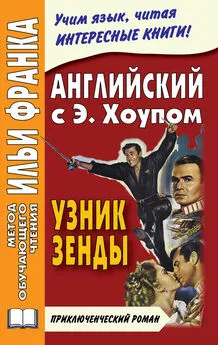
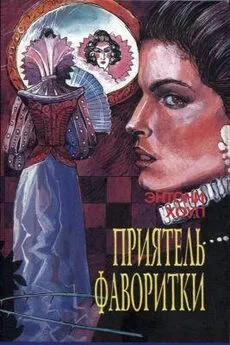
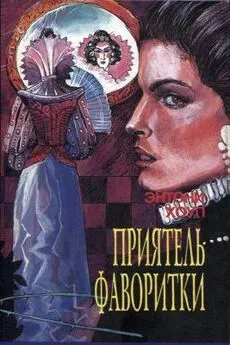
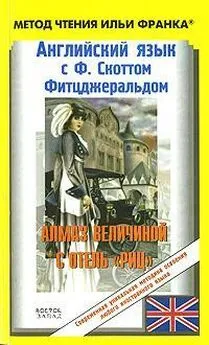
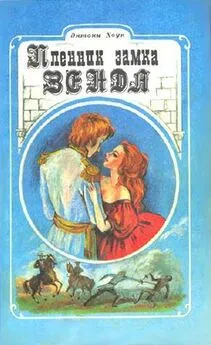
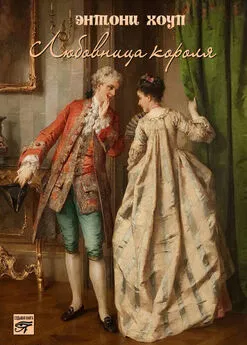
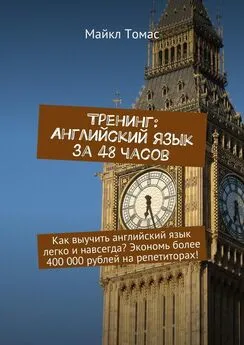
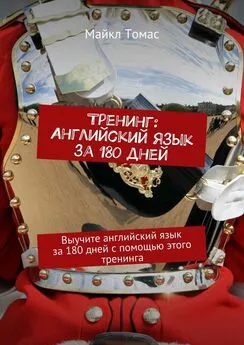
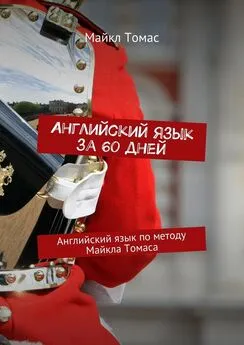
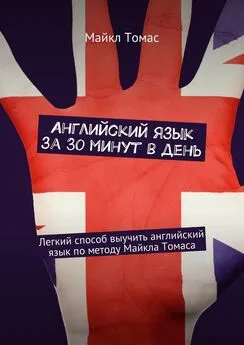
![Энтони Хоуп - Пленник Зенды. Месть Руперта [сборник]](/books/1090466/entoni-houp-plennik-zendy-mest-ruperta-sbornik.webp)